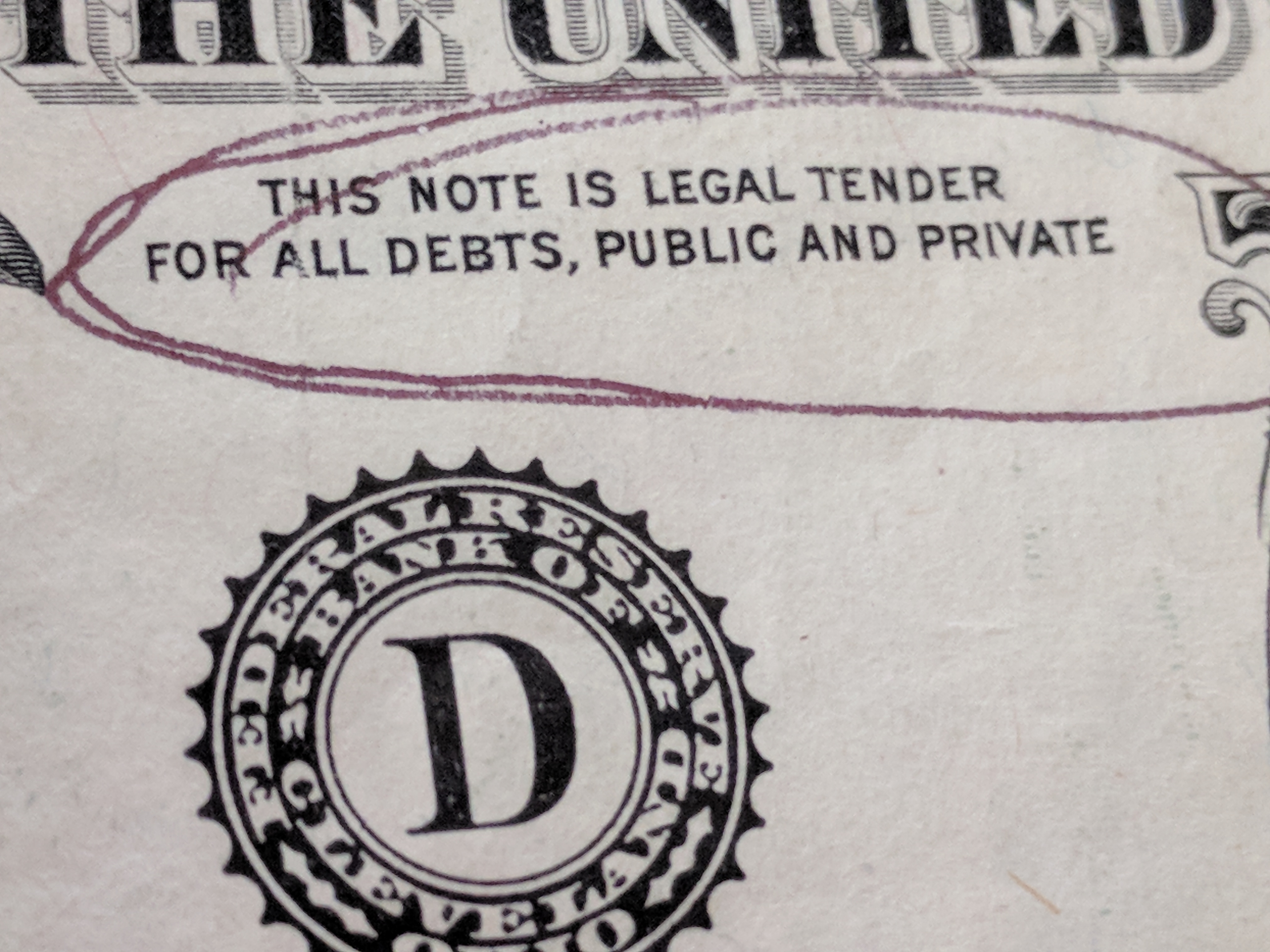Legal Tender
View FREE Lessons!
Definition of Legal Tender:
Legal tender is money the government has declared as a valid means of payment for debts and taxes.
Detailed Explanation:
Legal tender is money, but not all money is legal tender. For example, a creditor must accept five $20 bills to pay a $100 debt, but the creditor could refuse to accept a $100 check. The bills are legal tender. The government or a creditor must accept them. Checks are also money, but creditors are not required to accept them. In this case, checks meet all of the requirements of money. They are a medium of exchange accepted by most parties. It is a store of value and a measurable value. However, it is up to the vendor’s discretion and not a law to accept checks.

The European countries that converted to the euro as their currency declared the euro as its legal tender while discontinuing the use of its old currency as legal tender. For example, the German mark ceased to become legal tender on January 1, 2002, but the Bundesbank still permits people to convert marks to euros. A debit card is not legal tender because a merchant is not required to accept the card as a means of payment.
The government must accept all legal tender to pay its bills and taxes. However, private entities may refuse to accept some legal tender as payment for a good or service. For example, a family could pay its student loan in pennies and the government would be required to accept them. However, a car dealership could legally refuse to accept rolls of pennies to purchase a new car. Stores may refuse $50 or $100 bills.
Dig Deeper With These Free Lessons:
Monetary Policy – The Power of an Interest Rate
What Is Money
